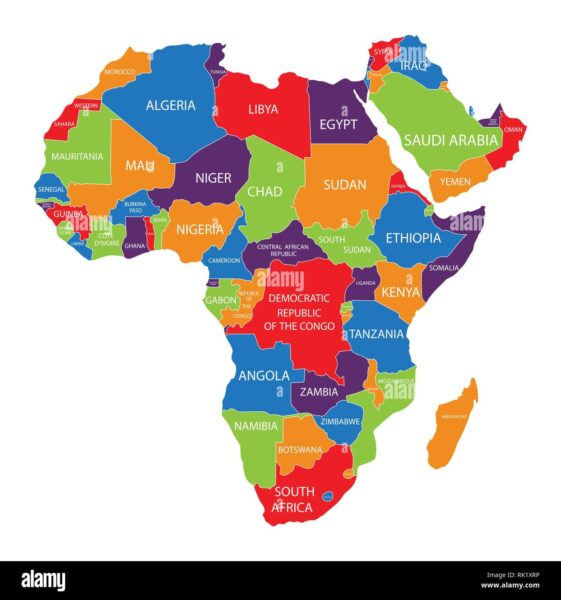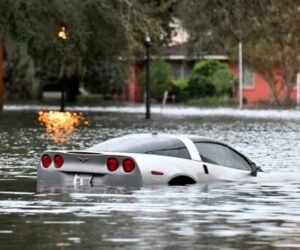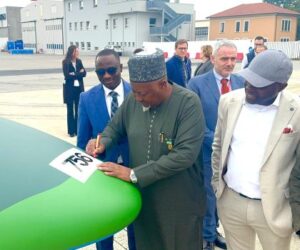A lecturer at the Institute for Peace and Strategic Studies and Tetfund Centre of Excellence in Security Management at the University of Ibadan, Prof. Isaac Olawale Albert, has said insurgency, arms trafficking, human smuggling and the spread of extremist ideologies prevade boarders, overwhelming national law enforcement capacities.
He said these also results to several security threats in West Africa which transcend national boarders, necessitating enhanced regional cooperation.
Prof. Isaac during his keynote address at the second edition of the West Africa Peace and Security Dialogue 2025 (WAPSED) organised by the Building Blocks for Peace (BBFORPEACE) foundation, observed that Islamist insurgencies in the Sahel and parts of the Northern Nigeria exemplify the transboundary nature of security risks, straining coordination and intelligence sharing.
Also, the Executive Director, BBFORPEACE/Regional Coordinator, GPPAC West Africa, Rafiu Adeniran Lawal, explained that this years’ West Africa Peace and Security Dialogue (WAPSED) is a collaborative initiative of the Building Blocks for Peace (BBFORPEACE) Foundation, Institute for Peace and Conflict Resolution (IPCR), LAC-LAC Network Niger Republic, GPPAC Foundation and the Society for Peace and Practice.
He said the theme of this years’ Dialogue, “Reimagining Peace and Security in West Africa: Local Solutions, Regional Solidarity and Global Partnerships”, reflects commitment to bottom-up, locally driven strategies.
He said the platform offers practitioners, policymakers, and stakeholders in peacebuilding, security, conflict resolution, and development a timely opportunity to assess and respond to the evolving challenges in the region.
“This dialogue could not be more urgent. Across West Africa, we face a complex web of threats undermining peace, stability, and development.
“In Nigeria, persister herder-farmer clashes, banditry, and violent extremism-especially the enduring Bok Haram insurgency-have destabilized the north-central, north-west, and north-eas regions.
“These conflicts have triggered ripple effects nationwide, including foc insecurity and inflation, as farmers are unable to access their lands. Public resource that should fuel development are increasingly diverted to address these crises.
“Beyond Nigeria, countries such as Mali, Burkina Faso, Togo grapple with inters conflicts, transborder crimes, and violent extremism. The recent wave unconstitutional government takeovers in Niger, Mali, Burkina Faso, and Guinea sigr a troubling democratic retreat.
“This erosion of democratic norms has fueled pul disillusionment, particularly regarding the economic and social dividends governance. Election-related tensions currently ongoing in Cote Ivoire. A widespread protests over economic hardships have occurred in a number of coun in the last few years.
“All of these have led to fatalities, displacement, and sta development. Maritime piracy further compounds these challenges, especially along our coastal corridors.
“These issues are deeply rooted in the political, economic, and social fabric of our societies. Poverty, underdevelopment, ethnoreligious divisions, and climate-induced crises continue to amplify instability. Addressing them demands a multifaceted, nuanced approach-there is no single solution.
“By centering real actors and lived experiences, we can foster regional knowledge exchange, trend mapping, and collaborative solutions that scale globally. security, and development across West Africa,” he said .
Director-General, Institute for Peace and Conflict Resolution (IPCR) Dr Joseph Ochogwu, said the Federal Government is dedicated to promoting peacebuilding and conflict prevention in Nigeria and Africa.
He said IPCR believes that sustainable peace in West Africa requires inclusive dialogue, strong regional cooperation, and locally driven solutions.
He said we must continue to strengthen the capacity of our institutions, empower communities, and integrate peace education into national development frameworks.
“Let us therefore use this forum not only to analyze the problems before us but to also generate actionable strategies that will enhance security, stability, and prosperity across our nations and region,” he said.








